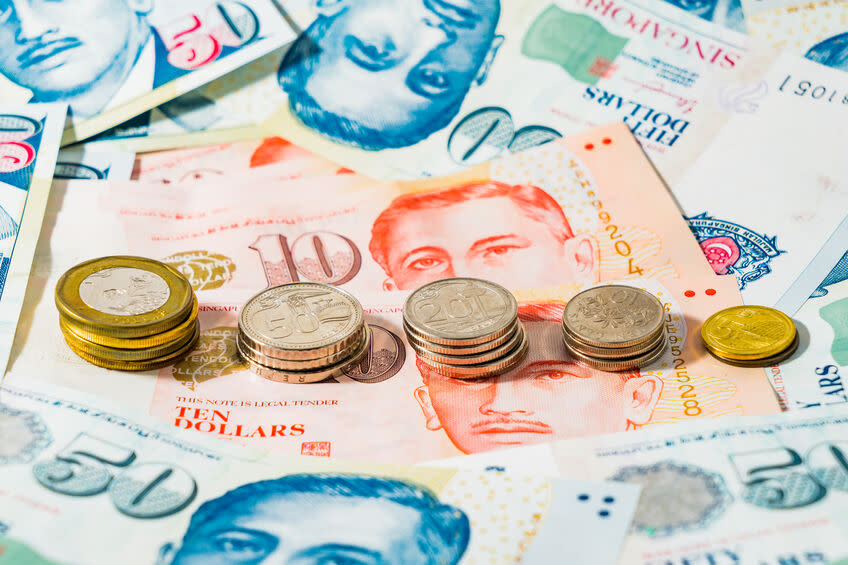Should You Buy an Investment Property to Rent Out in a High Interest Rate Environment?

Despite the COVID-19 pandemic, rising inflation, and looming recession, the Singapore residential property market is hotter than ever – especially the rental segment.
It’s a very expensive time for tenants in Singapore, which means it could be an opportunity for aspiring landlords to enter the market. However, there is one big ‘obstacle’ – property prices and interest rates are also at a high.
In this guide, we’ll discuss whether it makes sense to buy an investment property to capitalise on high housing rents in 2022. Beyond the upward trend of rental prices, we will also consider current property sale prices, as well as other costs of buying an investment property, such as interest costs and Additional Buyer’s Stamp Duty (ABSD).
What’s Happening in the HDB and Private Property Rental Market in 2022
Let’s first get up to speed on the current rental market in Singapore. According to the PropertyGuru Singapore Property Market Report Q3 2022, the Rental Price Index is the highest it has been in four years, at 152.4 points.
Likewise, the URA Rental Index of private residential properties registered an 8.6% quarter-on-quarter (QoQ) growth to 127 points in Q3 2022.
URA Rental Index of Private Residential Properties in 2022
Q1 2022 | 4.2% QoQ growth |
Q2 2022 | 6.7% QoQ growth |
Q3 2022 | 8.6% QoQ growth |
As you can see, private property rents have steadily registered bullish growth in 2022. The latest numbers (Q3 2022) are a whopping 23.9% increase from last year. Rental prices have gone up across all categories: landed properties (10.9%), non-landed properties (8.3%), and non-landed properties in the Core Central Region (CCR, 7.0%), Rest of Central Region (RCR, 9.6%), and Outside Central Region (OCR, 8.8%).
There is no similar rental index for historical HDB rental contracts, but PropertyGuru publishes a Rental Price Index in its quarterly Singapore Property Market Report (based on asking prices on PropertyGuru Singapore). For Q3 2022, the HDB Rental Price Index recorded a modest 0.95% QoQ growth.
Looking at the median HDB rents published by HDB for the same quarter, we can also see that almost all estates and flat types saw uplifts. Many were in the double-digit range, with the following registering the biggest growths in Q3 2022:
Executive apartment, Sembawang | 40.0% QoQ growth |
5-room flat, Clementi | 22.0% QoQ growth |
5-room flat, Punggol | 21.7% QoQ growth |
4-room flat, Jurong East | 19.1% QoQ growth |
4-room flat, Queenstown | 19.0% QoQ growth |
Unsurprisingly, the bigger units (4-room and above) commanded the highest prices and enjoyed the biggest price growth. The Q3 2022 median rent for executive apartments in Sembawang was $3,150, which is not the highest (still lower than smaller units in city fringe areas such as Queenstown and Bukit Merah) but is a huge leap from Q2 2022 rents, which was $2,250.
The rental price trend in 2022 is clear, but amid the current economic uncertainty, where are we headed in 2023 and beyond? We don’t have a crystal ball, but the best way to prepare for the coming year is to look at the demand and supply of rental homes in Singapore.
HDB and Private Property Rental Markets: What Can We Expect in 2023?
For private properties, the demand looks like it will continue to exceed supply. Since the pandemic-induced shift in behaviours, rental demand has been bullish thanks to young adults needing more space and privacy for remote working arrangements, couples and families plagued by construction delays, and foreigners returning to Singapore.
Yet, the supply of new private homes has been declining, bottoming out in 2020. Although the Government has actively taken steps to alleviate this pressure, the effects of their efforts (like increasing land supply) will only be seen in two to three years.
For HDB flats, however, we may perhaps be seeing the first signs of a slowdown. The PropertyGuru Singapore HDB Rental Price Index recorded its first dip in QoQ growth in Q3 2022. Rental volumes have also contracted, with approved applications falling by 12.0%, from 9,309 cases in Q2 2022 to 8,192 cases in Q3 2022. As of the end of Q3 2022, the number of HDB flats rented out was also quite stable (a modest 0.6% QoQ increase).
That said, we can never predict the future with complete certainty. Although Singapore has moved towards managing COVID-19 as an endemic and life as we know it is almost back to normal. But if anything market-moving happens, the outlook could change again dramatically. That’s one risk to take note of.

How Much Does It Cost to Buy an Investment Property in Singapore? 4 Things to Consider
Now, back to our original question of whether you should buy an investment property in current times. Here are some things you need to consider.
1. Rental Yield
If earning a side income is the priority, we need to consider your potential rental yield, which factors in not just your potential rent, but also the cost of acquiring a new property. This will help you decide where to buy.
The official URA real estate statistics for Q3 2022 show that landed properties saw the biggest uplift in rents (10.9%), but they are also the most expensive property class in Singapore. Non-landed properties in the RCR are a close second, with rents growing by 9.6%. However, where you might find the sweet spot is in the OCR, where the properties are the most affordable, but rents still grew by a competitive 8.8%.
2. Private Property Prices in Singapore
As you probably already know, property prices are as resilient and relentless as housing rents – if not more. According to the Singapore Property Market Report Q3 2022, the Sale Price Index has been rising for almost two consecutive years, from Q3 2020. Similarly, the URA Sale Index shows that private property prices are at a historical high.
The cost of buying a home now would vary very widely depending on where and what property you buy, but for the sake of this guide, let’s assume that you are a new investor, hoping to buy a 3-bedroom condo or apartment in the OCR. This would appeal to expatriates and/or local families who need a bit more space and would give HDB flat owners the additional option of moving into the condo and renting out their flats instead. Possible reasons why you might consider this is if you want to experience living in a private property, or if your HDB flat is particularly well-located.
At the time of writing (5 Nov 2022), here are the most affordable 3-bedroom condos and apartments on PropertyGuru:
The Woodgrove (893 sq ft, 3BR) | $800,000 |
101 Spottiswoode Park Road (850 sq ft, 3BR) | $920,000 |
Evergreen Park (1,012 sq ft, 3BR) | $930,000 |
Parc Rosewood (829 sq ft, 3BR) | $930,000 |
Parkview Apartments (1,087 sq ft, 3BR) | $970,000 |
3. Additional Costs: Valuation Fees, Legal Fees, Taxes, etc.
In addition to the property price, there are some other costs to factor in. These include interest costs, valuation fees, legal fees, home insurance, Buyer Stamp Duty (BSD), and potentially, ABSD. If you’re already a homeowner, you should be familiar with the first few. The only new cost of acquiring second (and subsequent) properties is the ABSD.
ABSD for Singaporeans buying their second property is 17%. That’s very significant. For the above examples, this will range from $136,000 to $164,900. It will be even more if you buy more expensive properties.
4. Financing Your Property Purchase in Singapore
Another thing to note is that if you intend to take up another mortgage to service your investment property (i.e., you are still servicing the mortgage for your first home, and need a second mortgage), the Loan-to-Value (LTV) limit is much smaller.
In your first mortgage, you may have been able to take up to 75% loan (or more, if you bought your property many years ago). However, for your second mortgage, the LTV drops to 45%. This means you must be ready to fork out 55% as a down payment. In the above examples, that’s a staggering $440,000 to $533,500 – the cost of some HDB flats!
Additionally, mortgage rates are currently on the rise, in tandem with global interest rates, which are currently in the range of 3.75% to 4%, and are expected to peak at 4.5% to 4.75% in 2023. At the time of writing, the most competitive mortgages on PropertyGuru Finance offer rates that are 3M Compounded SORA + 0.60% to 0.80%. Based on the most recent published rates (17 November 2022), the 3M Compounded SORA is 2.69% (rounded up to two decimal places), which puts those mortgage rates at 3.29% to 3.49%.
Assuming you buy an $800,000 property, and take up a $360,000 loan (at 45% LTV, with a home loan package with a 3.29% interest rate) with a tenure of 25 years, your monthly repayment is expected to be $1,762. This doesn’t seem too ‘scary’, especially since you’re expecting many more thousands in monthly rental income. However, don’t forget that this is only because you’re taking a smaller loan and have already paid for more than half of the property in the downpayment.

Is It worth Buying an Investment Property to Rent out in 2022?
Pros of Buying a Property to Rent out in 2022
Rental prices are at a high
Rental supply is low, which means you are likely to find tenants easily
Cons of Buying a Property to Rent out in 2022
Property prices are also at a high
Second (and subsequent) properties require an extra ABSD cost
Second (and subsequent) mortgages have a lower LTV, thus requiring a large cash/CPF down payment
Mortgage rates are high and expected to continue rising into 2023
Generally, it does not seem a particularly lucrative time to buy a property just for the sake of cashing in on the current rental prices. A property purchase is an enormous expense, and unless you are flush with cash, not a decision to be taken lightly.
But if you have already been saving up and are financially prepared to buy an investment property, then it is not necessarily a bad time either. In this case, you’ll need to consider whether the high rents will be able to offset the ABSD and high interest costs.
To calculate whether or not it’s worth it to take the plunge, you can consider working out the net rental yield, which will take into account the interest you expect to pay, as well as expenses like maintenance fees, agent commissions (for helping you find a tenant), and property tax. That will give you a more accurate indication of the returns on your investment. It is quite complex, but you can read this article to learn more.
We hope this guide has helped give you better insight into the considerations of buying an investment property to rent out in 2022. If you’re truly serious about taking this forward, we recommend you have a free, no-obligation chat with PropertyGuru Finance mortgage experts. They will be able to assess your finances and give you expert advice and recommendations on whether or not your strategy is feasible in the current climate.
Chat with us on Whatsapp Fill up an online form
Disclaimer: Information provided on this website is general in nature and does not constitute financial advice.
PropertyGuru will endeavour to update the website as needed. However, information can change without notice and we do not guarantee the accuracy of the information on the website, including information provided by third parties, at any particular time. Whilst every effort has been made to ensure that the information provided is accurate, individuals must not rely on this information to make a financial or investment decision. Before making any decision, we recommend you consult a financial planner or your bank to take into account your particular financial situation and individual needs. PropertyGuru does not give any warranty as to the accuracy, reliability or completeness of information which is contained on this website. Except insofar as any liability under statute cannot be excluded, PropertyGuru and its employees do not accept any liability for any error or omission on this website or for any resulting loss or damage suffered by the recipient or any other person.

 Yahoo Finance
Yahoo Finance 

